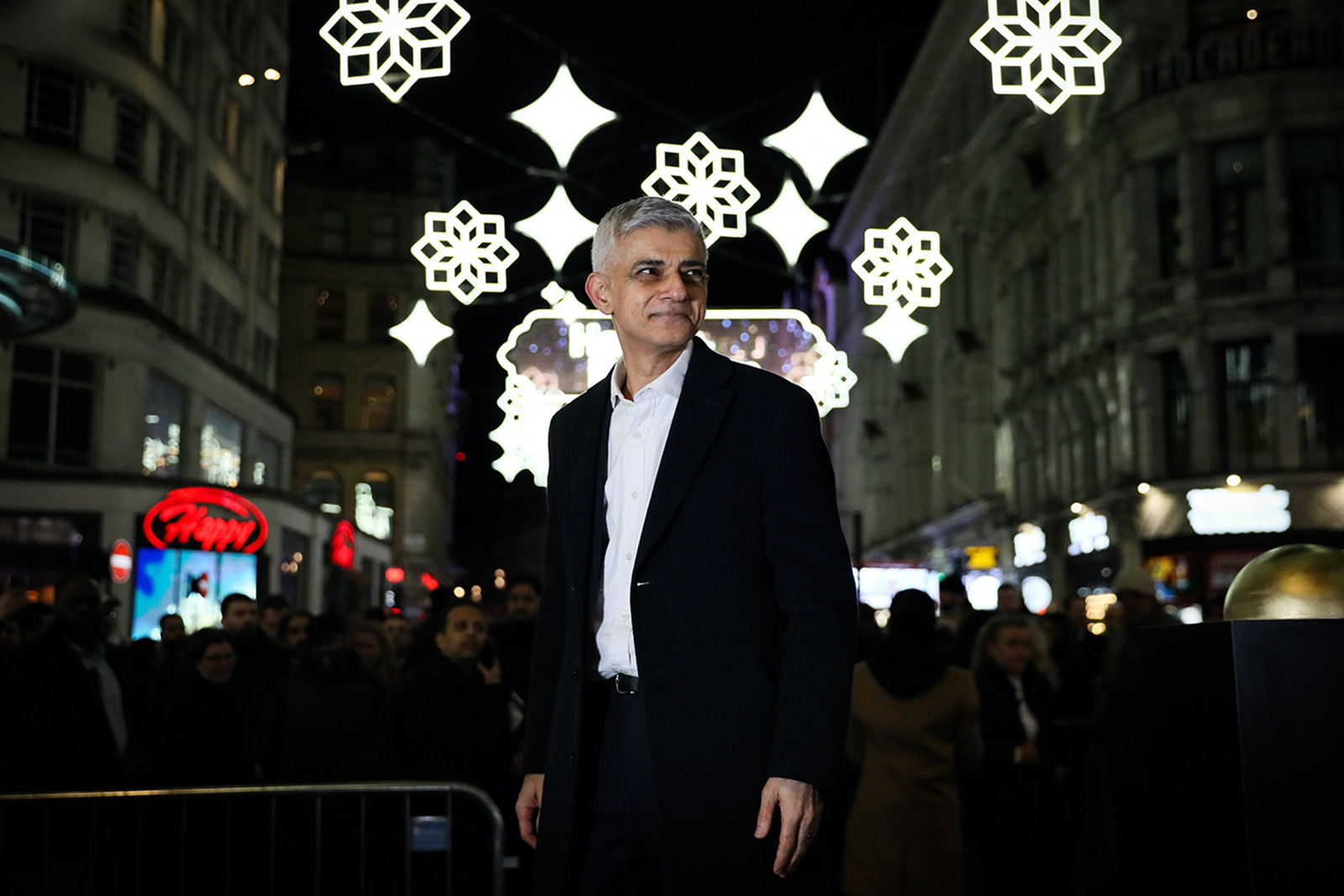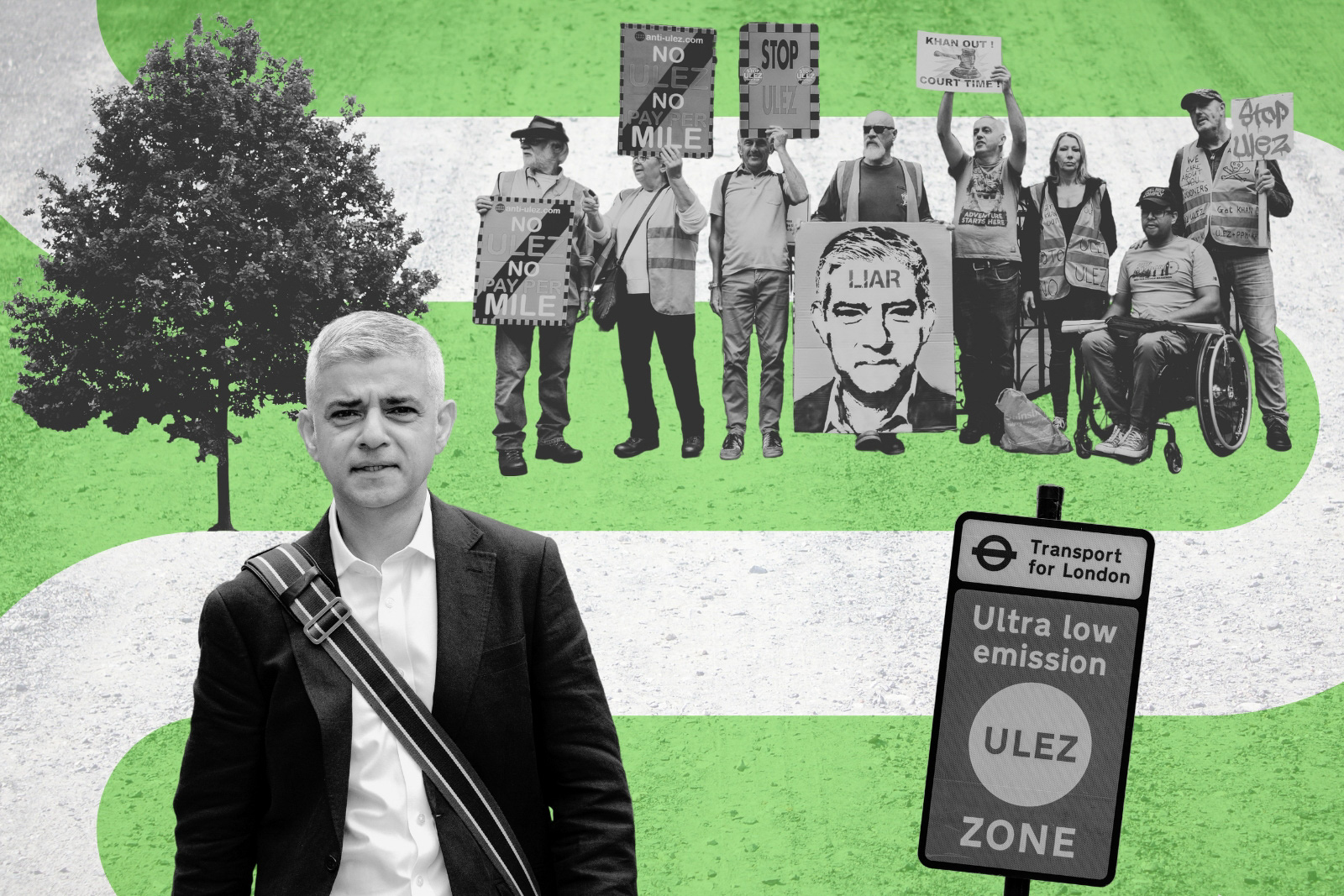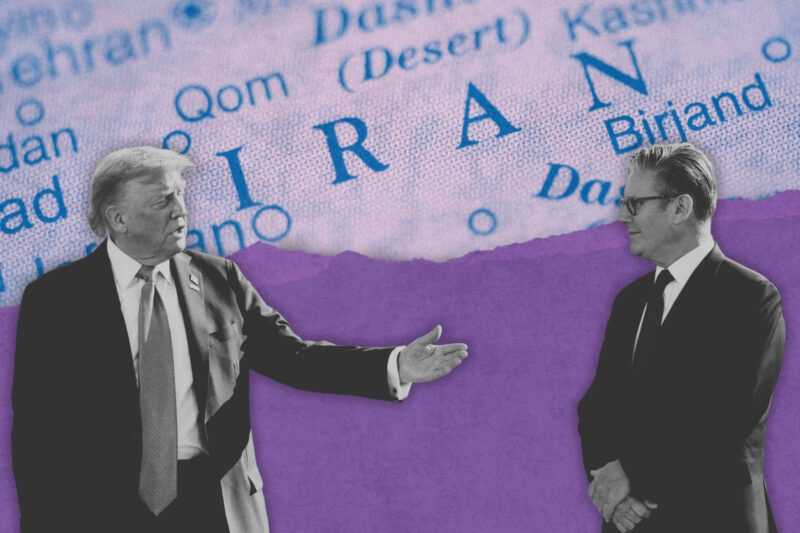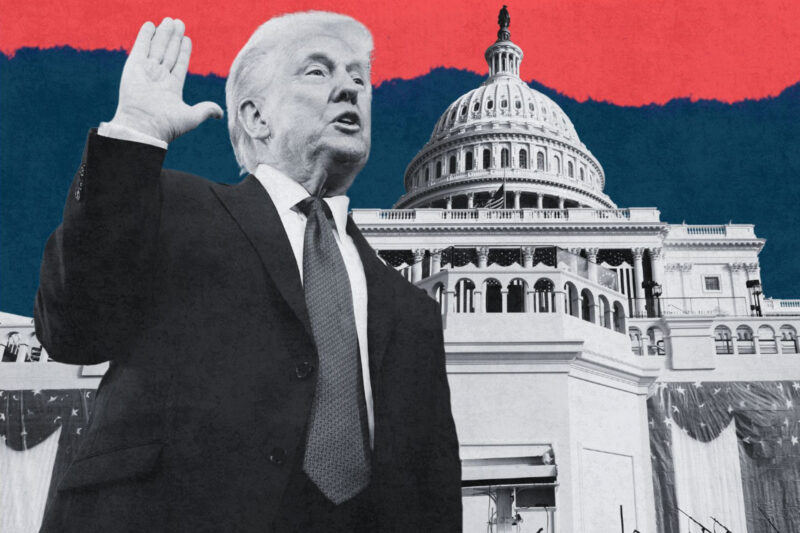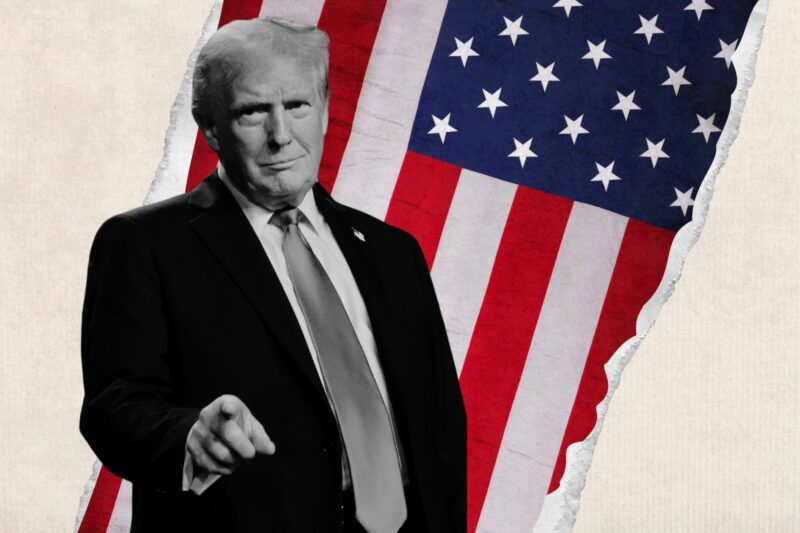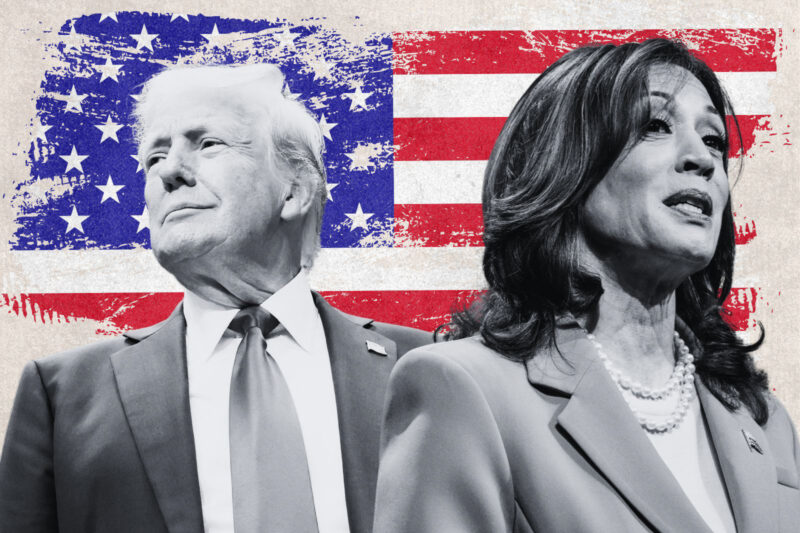Downing Street’s failure to defend Sadiq Khan hasn’t gone down well
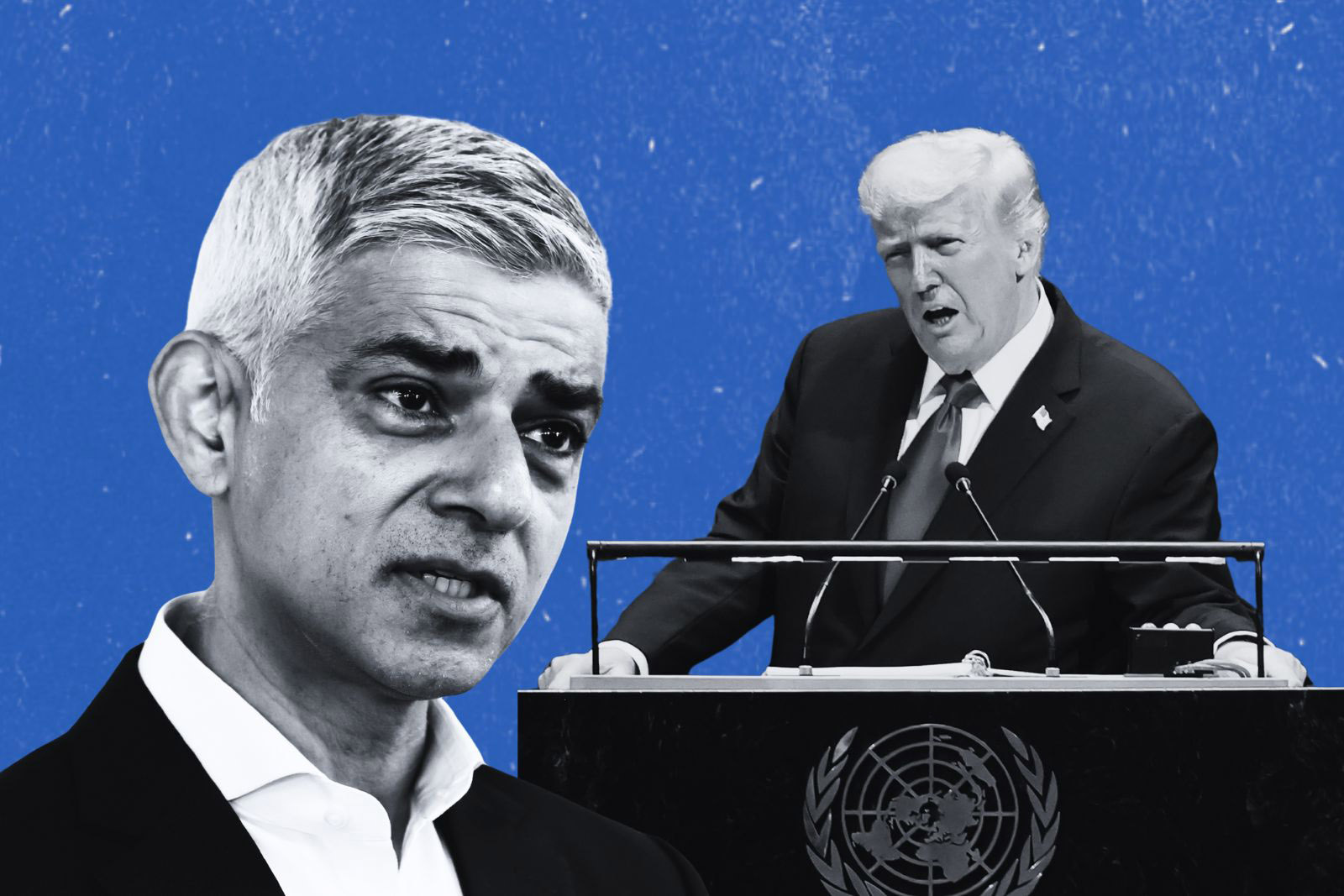
Donald Trump called the mayor of London ‘terrible’ during a rant some see as Islamophobic. Some MPs say Keir Starmer should have stepped up
“Whoever is operating this teleprompter is in big trouble,” Donald Trump said, moments after taking to the stage in New York this week. The person responsible for the broken teleprompter wasn’t the only one. With no script to refer to, the US president gave the UN general assembly a Trump speech in its rawest form: theatrical, improvised and littered with controversial falsehoods.
He attacked his predecessor Joe Biden. He complained bitterly about the UN itself, even dredging up an old slight from two decades ago when his company lost out on a construction contract. He revisited his familiar concerns against immigration. And, perhaps most eye-catchingly for those of us in Britain, he again took at one of his most persistent sparring partners on this side of the Atlantic: London’s mayor, Sadiq Khan.
“London has a terrible, terrible mayor,” Trump said. “It’s been changed, it’s been so changed. Now they want to go to sharia law.”
Quite who he meant by “they” was left unclear. Some listeners assumed he was accusing Khan personally of plotting to impose “sharia law” — that is, life in accordance with Islamic teachings, though the term is often weaponised by the political right to imply a harsh theocratic penal code — on Britain’s capital. Others took it as a broadside against the people of London in general. The claim, of course, is baseless. Neither Khan nor London as a city has displayed any intention of adopting “sharia law” — but factual accuracy has never been the hallmark of Trump’s oratory.
Khan responded to Trump’s comments by calling the president racist, sexist, misogynistic and Islamophobic. “What is it,” he asked, “about this Muslim mayor, who leads a liberal, multicultural, progressive, successful city, that means I appear to be living rent-free inside Donald Trump’s head?”
It is not the first time the two men have traded blows. Their feud began back in 2015 when Trump, still a presidential candidate, called for a ban on Muslims travelling to the US. Khan condemned the proposal. Since then, Trump has (among other things) challenged the mayor to an IQ test and branded him a “stone cold loser”.
Trump’s latest eruption, though, comes at an awkward moment. Keir Starmer and his team have been working tirelessly to build a positive relationship with the Trump administration, knowing full well they aren’t exactly politically aligned. Number 10 has tried, with some success, to minimise public disagreements. But Khan is a popular figure among Labour MPs, and Downing Street’s failure to condemn Trump’s comments outright has not gone down well.
Starmer hasn’t yet said anything on the subject at all. But when asked by my ITV colleagues to respond to the president’s remarks, Pat McFadden — who had been sent out to deliver the government’s line in broadcast interviews that morning — replied only: “I can tell you confidently that we have British law here, not sharia law.” Hardly a rebuke.
Other Labour MPs, however, have been far more open. Emily Thornberry, chair of the foreign affairs select committee, fired back on social media: “He’s a feminist, a socialist and an LGBTQ+ ally. I’m so proud he’s our London mayor. For the record, he’s as interested in introducing Sharia law to London as I am — ie 0%.”
Health secretary Wes Streeting added his voice, saying on X that Khan is a mayor “who marches with Pride, who stands up for difference of background and opinion”.
The Labour Muslim Network said Trump’s comments underscored “the Islamophobia that is mainstream in politics”. A number of Labour backbenchers told me similar in private. “The only reason he’s making the connection to sharia law is because of Sadiq’s faith and that is clearly Islamophobic,” said one.
Still, even some of those MPs acknowledged the bind Starmer faces. Britain’s relationship with the US remains its most important. Criticising Trump too sharply risks antagonising a president notorious for his temperamental reactions. “It’s a difficult balance,” another Labour backbencher admitted to me. “But at some point, you do wonder if the government should have the confidence to stand up to this nonsense.”
The broader implications are troubling. When a sitting US president falsely suggests the UK’s capital is sliding towards sharia law, it feeds into a global narrative of suspicion towards Muslims and multicultural cities. It risks emboldening far-right agitators at home and abroad, and it muddies the waters of diplomacy.
That is the paradox of Trump’s attacks: personal in tone, but political in impact. His jibes at Khan may seem like schoolyard taunts but they touch on deeper issues of race, religion, and identity in western life. They also test the resilience of a UK government trying to balance cordial relations with a volatile ally against the principle of standing up for one of its most senior elected officials — and the four million Muslims who live in the UK. But that is the reality of the world we now live in and it’s the challenge that those in office, like the prime minister, have to face.
Shehab Khan is an award-winning presenter and political correspondent for ITV News.
 Newsletter
Newsletter


